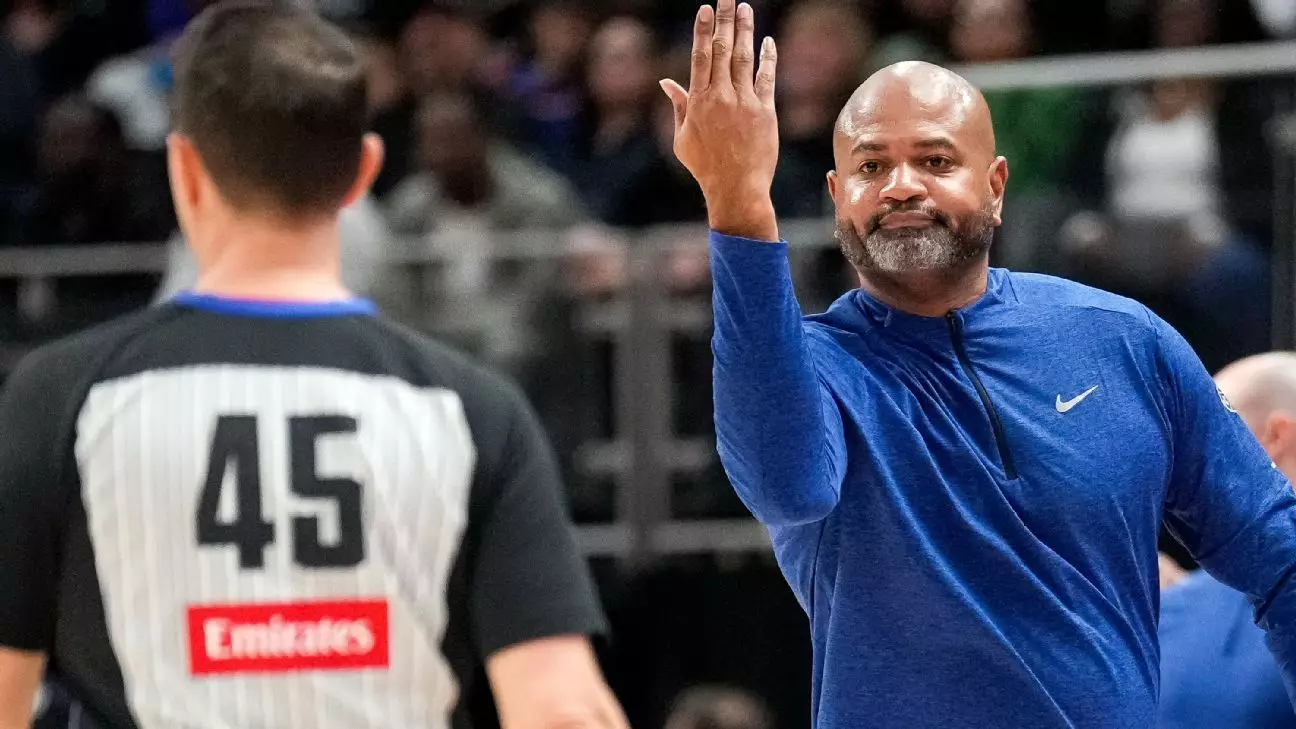In the world of professional sports, emotions run high, especially when adrenaline and competitiveness collide. But what happens when the very pillar of fair play—officiating—cracks under pressure? Coach J.B. Bickerstaff’s recent outburst after a tumultuous game against the Oklahoma City Thunder highlights an inconsistency that fans and players alike cannot overlook. The Detroit Pistons encountered a barrage of five technical fouls in merely one quarter, igniting not just frustration but a serious question about the integrity of officiating in basketball. Bickerstaff’s vehement critique post-game was not merely a coach’s defense of his players; it was a call to action against what he deems systemic disrespect by referees.
The Catalyst for Controversy
The instigators of this controversial rollercoaster were players Cade Cunningham and Dennis Schroder, who were both penalized for their fervent protests aimed at the officiating crew. The precise moment when Cunningham received two technicals, culminating in an ejection, exemplified not just his frustration but perhaps an overarching theme of suppression experienced by athletes in high-stakes environments. The emotions displayed by players are integral to the sport; they are part of its fabric. Yet, when feedback morphs into reprimands, is it really about maintaining order, or is it a blatant disregard for player rights?
Bickerstaff’s outcry about the “level of disrespect” signals a dangerous precedent. Was it merely two players losing their composure, or were they victims of an authoritarian interpretation of the rules? The referees’ decision-making, under scrutiny, begs a larger question: should the subjective nature of officiating be revisited? Bickerstaff urged for a more profound examination of officiating protocols, demanding accountability when such blatant inconsistencies arise.
Officiating: A Double-Edged Sword
Following the game, crew chief Brian Forte defended the referees’ decisions as necessary to preserve the game’s sanctity. However, his justification seems misaligned with the players’ experience. Continuous complaints from players profoundly impact game dynamics. Yet, labeling an emotional reaction as “disrespectful” risks stifling the passion these athletes embody. It’s essential to find a balance that allows for passionate engagement without judgment that feels excessive.
Oklahoma City’s coach, Mark Daigneault, provided an interesting counterpoint, detailing the pre-game expectations surrounding the officiating crew’s loose whistle. This differential approach in officiating elevates the stakes and creates an uneven playing field, complicating the question of fairness in competition. Fans wonder: if officiating continues to fluctuate without repercussion, what does that mean for the league’s integrity in the long run?
Reconfiguration for the Future
As the dust settles on this gripping encounter, it’s clear that a dialogue must emerge concerning the overarching protocols of officiating. Bickerstaff’s passionate defense of his players serves as a reminder of the intricate balance between authority and respect. Any system, particularly one as passionate as professional basketball, must ensure that its referees act as guardians of fairness, not as agents of frustration. Continuing to foster an environment where players feel free to express legitimate grievances could redefine the game for the better. It’s time to reclaim respect on both sides—to allow athletes to voice their concerns without fear of heavy-handed retaliation. The challenge lies in rebuilding the trust essential for the evolution of the sport.

